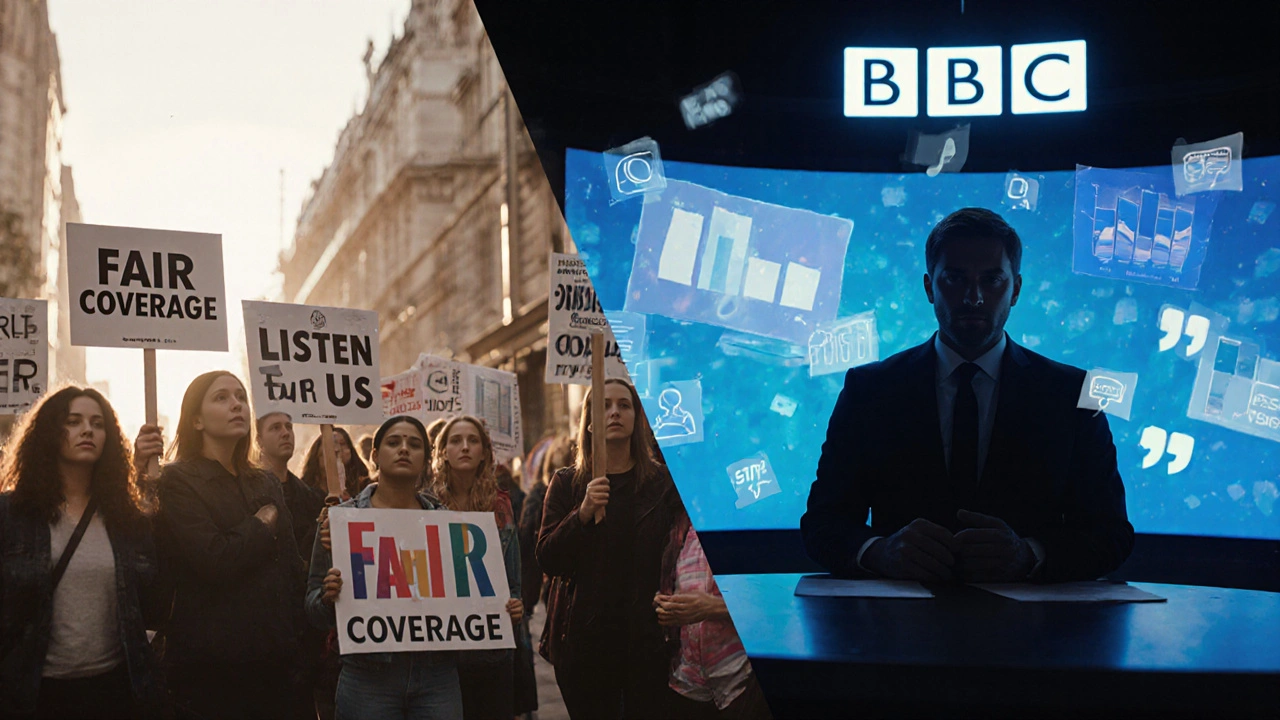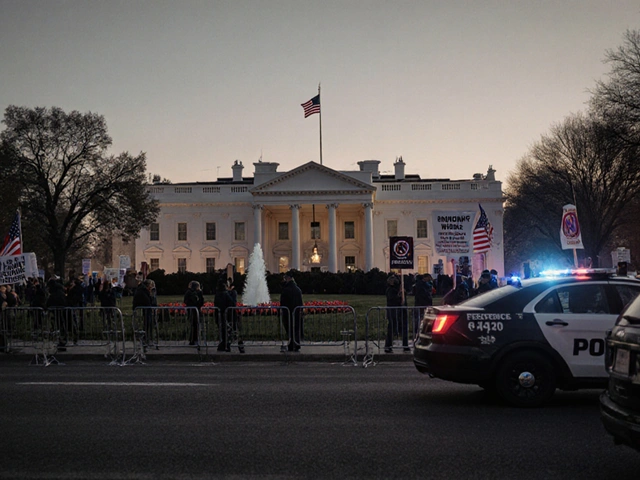For decades, BBC News has been the default source of news for millions in the UK and around the world. But in recent years, questions about its fairness have grown louder. Is BBC News biased? Or is it still the gold standard for impartial reporting? The answer isn’t simple - and it depends on who you ask, what you’re looking at, and how you define bias.
What does impartiality mean for BBC News?
The BBC’s charter says it must be ‘impartial’ and ‘accurate’. That means not favoring one side over another in political, social, or cultural debates. It’s not about being neutral - it’s about giving space to multiple viewpoints in proportion to their relevance and support. For example, if 70% of the public supports a policy, and 30% opposes it, BBC reporting should reflect that split in the voices it includes.
That’s harder than it sounds. Take Brexit. In 2016, the BBC faced criticism from both sides: Leave supporters said it gave too much airtime to Remain voices; Remain supporters said it gave equal weight to fringe conspiracy theories. The BBC’s response? It reviewed its coverage and adjusted how it selected experts and sources. But the criticism didn’t stop.
Who says BBC is biased - and why?
Conservatives often claim the BBC is left-wing. They point to interviews with Labour politicians, coverage of climate change, and stories about inequality. In 2023, a UK government-commissioned review found that BBC coverage of immigration and welfare policies tended to emphasize human costs over economic arguments - a pattern critics labeled as liberal slant.
Meanwhile, some progressives argue the BBC is too centrist, or even right-leaning. They cite how the BBC gave significant airtime to right-wing commentators like Toby Young and Daniel Hannan during the 2019 election, while giving less prominence to voices from the far left. In 2024, a study by the Media Reform Coalition found that BBC Radio 4’s Today program featured Conservative voices 47% more often than Labour voices during the general election campaign period.
Even the BBC’s own internal audits have flagged issues. In 2022, an internal review of its political coverage found that senior editors sometimes favored ‘establishment’ voices - MPs, think tanks, and retired generals - over grassroots activists, union leaders, or minority community representatives.
What does the data say?
Independent researchers have tried to measure bias using tools that analyze language, sourcing, and tone. One major study from the University of Oxford in 2023 analyzed over 12,000 BBC News articles on politics between 2018 and 2023. They found:
- BBC used more negative language when describing Conservative government policies than Labour’s - but only slightly (2.3% difference).
- When quoting politicians, the BBC cited Labour and Conservative sources almost equally - 49% vs. 51%.
- But when citing experts, 68% came from institutions linked to the center-right - universities like Oxford and Cambridge, think tanks like the Institute of Economic Affairs - while only 18% came from left-leaning institutions like the New Economics Foundation.
Another analysis by the Media Standards Trust in 2024 looked at how the BBC framed protests. When covering pro-Palestinian rallies, it used terms like ‘demonstrators’ and ‘activists’ 83% of the time. When covering anti-lockdown protests, it used ‘protesters’ 91% of the time - a small difference, but one that signals a subtle framing pattern.

How does BBC compare to other UK news outlets?
Comparing the BBC to other outlets helps put things in perspective.
| Outlet | Political Lean | Fact-Checking Score | Public Trust (UK) |
|---|---|---|---|
| BBC News | Center | High | 62% |
| The Guardian | Left | High | 48% |
| The Telegraph | Right | Medium | 39% |
| Sky News | Center | High | 56% |
| Daily Mail | Right | Low | 31% |
The data shows BBC News sits in the middle - more balanced than The Guardian or The Telegraph, but not perfectly neutral. Sky News, which also claims impartiality, has slightly lower public trust, but similar sourcing patterns. The real outlier is the Daily Mail - it’s the most biased, but also the most read. That’s the paradox: the most trusted outlet isn’t the most popular.
Why does perception of bias matter more than reality?
People don’t judge news based on data. They judge it based on whether it matches what they already believe. If you’re a Conservative voter, you’ll notice when the BBC mentions a Labour MP’s quote. If you’re a Labour supporter, you’ll notice when the BBC gives airtime to a right-wing pundit. This is called confirmation bias - and it’s powerful.
Studies from the Reuters Institute show that 73% of UK adults believe the BBC is biased - but only 29% can name a specific example. That gap tells you something: distrust is often emotional, not factual.
The BBC knows this. That’s why it now publishes detailed ‘Editorial Guidelines’ online, explains its sourcing decisions in footnotes, and even has a public editor who answers complaints. In 2024, over 11,000 complaints were filed. The BBC upheld 12% - mostly over tone, not content. Only 3% were about clear factual errors.

Is BBC News still trustworthy?
Yes - but not because it’s perfect. It’s trustworthy because it tries. It corrects mistakes publicly. It discloses conflicts of interest. It gives airtime to unpopular opinions - even when it knows it will be criticized.
Compare that to social media, where algorithms reward outrage and silence nuance. Or to outlets that openly endorse parties. The BBC still operates under a public service mandate: to inform, not to persuade.
That doesn’t mean it’s always fair. It means it’s the best we’ve got - and it’s constantly under pressure to improve. If you want to understand the UK, you need to read the BBC. But you also need to read beyond it. Because no single source is unbiased. The truth isn’t in one outlet. It’s in comparing them.
How to spot bias - even in trusted outlets
Here’s how to check for bias yourself:
- Look at the sources. Are they mostly from one side? Are experts from the same institutions?
- Check the language. Does the article use emotional words like ‘chaotic’ or ‘brave’? Neutral reporting sticks to facts.
- Compare coverage. Read the same story on BBC, The Guardian, and The Telegraph. See what’s left out.
- Check the timing. Is a negative story about a politician published right before an election? That’s not always bias - but it’s worth asking.
- Read the corrections. Every outlet makes mistakes. How they handle them tells you more than their headlines.
The BBC isn’t perfect. But it’s the only major UK news outlet that publishes its internal reviews, invites public feedback, and changes its practices when it gets it wrong. That’s not bias. That’s accountability.
Is BBC News the most trusted news source in the UK?
Yes, according to the 2024 Reuters Institute Digital News Report, 62% of UK adults trust BBC News - more than any other outlet. Sky News comes second at 56%, followed by The Guardian at 48%. Trust is higher among older audiences and lower among younger ones, but overall, it remains the most trusted.
Does BBC News favor the Labour Party?
No consistent evidence supports this. Independent studies show BBC coverage of Labour and Conservative parties is nearly equal in volume. However, critics argue it gives more sympathetic framing to Labour on social issues like welfare and housing, while being more critical of Conservative economic policies. This isn’t favoritism - it’s reporting on different policy impacts. The BBC’s guidelines require it to explain consequences, not judge them.
Why do people say BBC is biased if the data says it’s balanced?
Because bias is often felt, not measured. People notice when a story contradicts their beliefs - even if the reporting is fair. A 2023 study from Cardiff University found that viewers who strongly identify with a political party are twice as likely to call the BBC biased, regardless of actual content. This is called motivated reasoning - we interpret information to protect our identity.
Has the BBC ever been found to be factually wrong?
Yes. In 2021, the BBC wrongly reported that a UK minister had been investigated for corruption. It later retracted the story and issued a public apology. In 2023, it mischaracterized a statistic on immigration numbers. These are rare - less than 0.5% of stories - but the BBC corrects them publicly and explains why they happened. That transparency is part of why it’s still trusted.
Should I stop watching BBC News because of bias claims?
No - but don’t rely on it alone. Use it as your baseline. Then compare it with The Guardian, The Telegraph, and even international outlets like Reuters or Al Jazeera. You’ll see patterns. You’ll spot where one outlet leaves out context. That’s how you build real understanding - not by picking one side, but by seeing the whole picture.
What to read next
If you want to dig deeper, look into the BBC’s annual Editorial Guidelines, or read the Ofcom reports on its compliance. You can also explore how other public broadcasters - like CBC in Canada or ABC in Australia - handle similar pressures. The challenge isn’t unique to the UK. It’s a global question: how do you serve a divided public without becoming part of the division?



